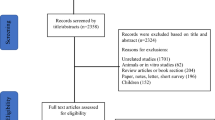Abstract
Objective
This study identifies factors affecting sleep patterns among thoracic surgery patients in the intensive care unit (ICU) and compares the perceptions of sleep-disturbing factors between nurses and patients.
Methods
One hundred and fifty-two patients and 40 nurses were surveyed using the Pittsburgh Sleep Quality Index (PSQI) and self-designed questionnaires (for patients and nurses). All statistical analyses were carried out by SPSS, and the following statistical methods were used to evaluate the data: chi-squared test and logistic regression.
Results
Of 152 patients, 46.1 % reported poor sleep quality during their hospitalization; their PSQI total score was 6.95 ± 3.713. Of these, 69.1 % indicated that their sleep quality was poorer than before; 50.0 % of them changed their sleep patterns. Significant discrepancies exist between nurses and patients in the perceptions of sleep-disturbing factors of patients.
Conclusion
Thoracic surgical patients’ perceptions of their sleep in the ICU indicate poor sleep quality, which is decided by a variety of disturbing factors. Perceptions of these factors varied greatly between surveyed patients and nurses.
Similar content being viewed by others
References
Olson DM, Borel CO, Laskowitz DT et al (2001) Quiet time: a nursing intervention to promote sleep in neurocritical care units. Am J Crit Care 10(2):74–78
Davidson JR, MacLean AW, Brudage MD et al (2002) Sleep disturbances in cancer patients. Soc Sci Med 54:1309–1321
Parish JM (2009) Sleep-related problems in common medical conditions. Chest 135(2):563–572
Ginsburg ML, Quirt C, Ginsburg AD et al (1995) Psychiatric illness and psychosocial concerns of patients with newly diagnosed lung cancer. CMAJ 152(5):701–708
Le Guen Y, Gagnadoux F, Hureaux J et al (2007) Sleep disturbances and impaired daytime functioning in outpatients with newly diagnosed lung cancer. Lung Cancer 58(1):139–143
Nicolás A, Aizpitarte E, Iruarrizaga A et al (2008) Perception of night-time sleep by surgical patients in an intensive care unit. Nurs Crit Care 13(1):25–33
Freedman NS, Kotzer N, Schwab RJ (1999) Patient perception of sleep quality and etiology of sleep disruption in the intensive care unit. Am J Respir Crit Care Med 159:1155–1162
Simini B (1999) Patients’ perceptions of intensive care 354: 571–572
Buckle P, Pouliot Z, Millar T et al (1992) Polysomnography in acutely ill intensive care unit patients. Chest 102:288–291
Davidson JR, MacLean AW, Brundage MD et al (2002) Sleep disturbance in cancer patients. Soc Sci Med 54:1309–1321
Gabor JY, Cooper AB, Crombach SA et al (2003) Contribution of the intensive care unit environment to sleep disruption in mechanically ventilated patients and healthy subjects. Am J Respir Crit Care Med 167:708–715
Carskadon MA, Dement WC (1999) Normal human sleep: An overview. In: Kryger M, Roth T, Dement WC (eds) Principles and practice of sleep medicine. Saunders, Philadelphia, pp 15–26
Meyer TJ, Eveloff SE, Bauer MS et al (1994) Adverse environmental conditions in the respiratory and medical ICU settings. Chest 105:1211–1216
Kamdar BB, Needham DM, Collop NA (2011) Sleep dDeprivation in cCritical iIllness: iIts rRole in pPhysical and pPsychological rRecovery. J Intensive Care Med 21:261–269
Bergbom-Engberg I, Haljamäe H (1989) Assessment of patients’' experience of discomforts during respiratory therapy. Crit Care Med 17:1068–1072
Christensen M (2005) What knowledge do ICU nurses have with regard to the effects of noise exposure in the intensive care unit? Intensive Crit Care Nurs 21:199–207
Richardson A, Crow E, Turnock C (2007) A comparison of sleep assessment tools by nurses and patients in critical care. J Clin Nurs 16:1660–1668
Conflict of interest
None declared.
Author information
Authors and Affiliations
Corresponding author
Additional information
The authors Zhang Lei and Sha Yong Sheng contributed equally to this paper.
Rights and permissions
About this article
Cite this article
Zhang, L., Sha, Y.S., Kong, Q.Q. et al. Factors that affect sleep quality: perceptions made by patients in the intensive care unit after thoracic surgery. Support Care Cancer 21, 2091–2096 (2013). https://doi.org/10.1007/s00520-013-1754-2
Received:
Accepted:
Published:
Issue Date:
DOI: https://doi.org/10.1007/s00520-013-1754-2




